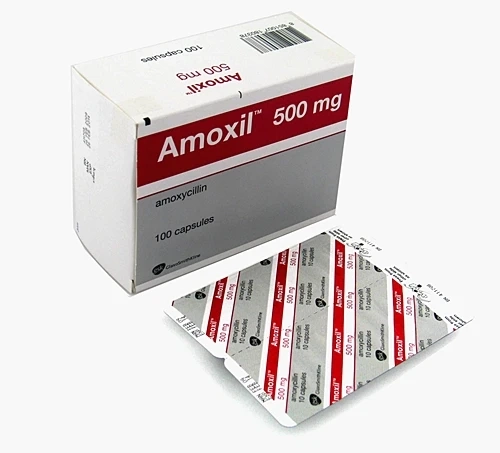A patient came into my office for a post-op check on his spinal fusion. The scar was healing beautifully, his mobility was excellent. By all my metrics, he was a resounding success. Yet, the man looked miserable. He was pale, slumped, and had dark circles under his eyes.
"My spine feels great, Doc," he said with a sigh. "But the rest of me feels like I've been... comprehensively poisoned. I can't think straight. I feel weak. I have zero appetite. What's going on?"
My first thought, as always, is to investigate a neurological cause. But after a few questions, the real culprit emerged. A week earlier, his dentist had found an abscessed tooth and prescribed him a course of Amoxil 500 mg.
He had solved one problem only to create a very different, very visceral one. And to understand the side effects, you have to understand that your body isn't just one organism. It's a bustling planet, and the most populous country on that planet is your gut.
I call the gut "the second brain." It's not just a simple tube for processing food; it's lined with more neurons than the spinal cord. It houses a vast, complex ecosystem of trillions of bacteria, fungi, and other microbes. This is your microbiome. When it's in harmony, this "second brain" is happy, and it sends happy signals to the "first brain" in your head.
Now, what is Amoxil? It's an antibiotic. Its job is to kill bacteria. Specifically, the bad bacteria causing that tooth infection.
But here's the problem: Amoxil is not a sniper. It's a bomber.
It's a blunt instrument designed to wipe out a broad spectrum of bacteria. When you take that 500 mg pill, it doesn't just march to your tooth and execute the single offender. It carpet-bombs the entire planet. It lays waste to the bustling, harmonious ecosystem in your gut, killing not just the bad guys, but countless innocent, helpful bacteria that are essential for digestion, nutrient absorption, and even regulating your mood.
So, what are the common Amoxil 500 mg side effects? They are the direct, predictable consequences of this internal devastation.
- Diarrhea and Nausea: This is the most common. It is the immediate cry of protest from your gut. The ecosystem has been thrown into chaos, the normal digestive processes are offline, and the system is in full-blown rebellion.
- Brain Fog and Fatigue: This is the part that interests me most. Your "second brain" is in turmoil, and it's sending frantic, desperate signals up the vagus nerve to your "first brain." It's screaming, "We are under attack! All resources to the gut! It's a catastrophe down here!" Your brain, receiving these panic signals, can't focus on other tasks. The result is that feeling of being disconnected, slow, and utterly exhausted. The misery isn't "all in your head"; it's a direct report from the warzone in your gut.
- Yeast Infections (Thrush): The antibiotic bomber has wiped out the good bacteria that normally keep the opportunistic fungus Candida in check. With the police force gone, the fungus throws a wild party, leading to thrush or other yeast infections.
When my patient understood this—that he wasn't being poisoned, but that his internal ecosystem was temporarily in ruins—it reframed everything. He understood the side effects not as a mysterious illness, but as a logical consequence.
The solution isn't to stop the antibiotic (that's a terrible idea that leads to resistant bacteria). It's to become a good planetary steward. Finish the course to kill the infection, but support the ecosystem's recovery with probiotics, yogurt, and fermented foods to help repopulate the good bacteria.
It's a potent lesson: sometimes, the most powerful neurological healing involves taking care of the brain you never think about.
Disclaimer: Amoxicillin is a vital and effective prescription antibiotic. You must always complete the full course as prescribed by your doctor, even if you feel better. Stopping early can lead to the infection returning stronger and more resistant. This article explains common side effects; it is not a reason to avoid medication. If you experience severe side effects (like difficulty breathing, severe hives, or intense stomach cramps), contact your doctor or seek emergency care immediately.



